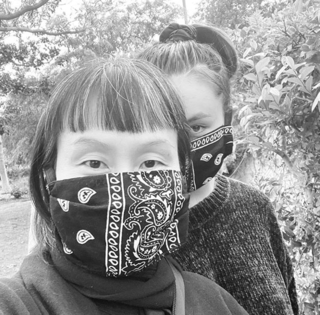Health
6 Suggestions for Making the Most of “Sheltering in Place”
Ideas for living well in isolation from someone with years of experience.
Posted April 21, 2020 Reviewed by Jessica Schrader

I’m aware that this piece won’t apply in full to everyone. I’m deeply grateful to medical and other essential workers who are continuing to take care of our needs at great risk to themselves.
I’m also aware that many people are working from home or taking care of children or others, and so much of their day is taken up with things they must do. And, finally, I know that many people have lost their jobs and are spending a good part of the day online or on the phone, trying to find work or applying for unemployment insurance.
I hope that even people in these difficult circumstances will be helped by this piece.
I’m among the fortunate. That’s a statement I don’t usually make when writing about medical matters, since I’ve been chronically ill for close to 20 years. My illness cost me my job, many of my friendships, and the ability to spend time away from home.
I’ve, in effect, been sheltering in place for almost two decades. That said, when I think of the suffering people are enduring because of this pandemic, I feel fortunate.
If you’re new to sheltering in place, here are six suggestions that come from my years of doing the same. Even if your day is filled with “have to"s, I hope you can find some time for yourself.
1. Take refuge in fiction
Whether a book is in paper, electronic, or audio form, fiction can become a faithful companion. Historical fiction transports you to any time in history that intrigues you. Or, you might prefer stories set in the present. I listen to audiobooks. I approach some of them the way I do pieces of music that I love—I listen to them over and over. The characters become friends. I laugh with them. I cry with them. I learn from them. I re-listen to P.D. James’ mysteries even though I know who “done it”; it’s actually more fun the second time through because I pick up on clues about the culprit all along the way.
I even wrote a post for Psychology Today that was inspired by a character in one of Alexander McCall Smith’s novels. Here it is: “How to Protect That Special Time You Put Aside for Yourself.”
Getting lost in fiction is a soothing balm for these “stranger than fiction” days.
2. Find time to loaf
In the words of Mary Oliver, find time to “fly low” and “let the voodoos of ambition sleep.” I’ve read some articles saying that, in this time of sheltering in place, we should make a schedule each day. It’s a good idea but, in my view, you don’t always have to follow it. If there’s a day you don’t want to get out of your pajamas or other nightclothes, don’t. Fitting in some time to be lazy is good for you, especially if you’re working from home or taking care of others. (Maybe put “loaf time” in that schedule!)
One of my favorite ways to “loaf” is what I call doing nothing. I write about it in my book, How to Be Sick. Most of us never learn to do nothing because our culture doesn’t value it, but it’s calming and restorative. I lie on my bed or sit outside with my eyes open and simply watch whatever arises at my sense doors. Sights and sounds come and go. Thoughts come and go.
Once in a while, thoughts start piling upon thoughts (we all know that experience). When that happens, I remind myself that right now I’m doing nothing. Usually the thoughts take the hint and make a hasty exit. If they don’t, I treat them as meaningless chatter in my mind.
This practice is relaxing and rejuvenating. I hope you’ll try it, even if you only have a few minutes.
3. Go outside, even just to sit
Being outside takes you out of focusing on the drastic changes you may be experiencing in your everyday life. After all, trees, flowers, and birds don’t know that life is any different now—except that the air is cleaner. (Of course, you need to maintain social distancing and wear a mask if it’s required where you live.)
When you open your door to go outside, set the intention to find something new that’s uplifting to notice. For me, it’s how delicate and transparent the spring leaves are looking right now as they’re coming in on bushes and trees. I can’t engage in aerobic exercise so I stroll: I literally stop to “smell the roses” (or other flowers). It’s calming and I find myself feeling an open-hearted spaciousness that that’s harder to experience when I’m inside.
4. Discover YouTube
I’ve found a world of offerings on YouTube. I can watch on my computer but prefer using the Roku app on my TV because big screens are easier for me to watch. I’ve found everything from how to cut hair to musical performances in every genre.
My husband and I love videos that put us in the cockpit as pilots land on challenging runways. Having landed as a passenger at San Diego’s airport (and wondering, as we descended so steeply, if we’d ever make it), I’ve now seen it as the pilots experience it—dealing both with tailwinds and high rises all around them.
We’ve also found videos of pilots landing on the flight decks of aircraft carriers—what my daughter-in-law’s father did in the Navy. I had no idea that the planes have a hook on their tails. The pilot has to be sure to snag the hook on one of four wires that are strung across the flight deck so the plane is immediately slowed down enough to stop before going straight into the ocean. It’s impressive.
Our other special find: Nahre Sol—a classically trained pianist who is a pleasure to hang out with. She posts short videos on an astounding range of musical subjects, from classical music to jazz to soul. I particularly love the videos where she illustrates on her piano different composers’ styles of writing, and then plays Happy Birthday in that style.
We also like to be on the high seas with couples in their sailboats. We watched one video, filmed in real time, as a sailboat sprung a bad leak in the hull. After their electric pump broke, the couple put out a mayday signal and started using buckets to bail water out of the hull. It was scary but they were amazingly calm (for the most part). Finally, some fishermen heard the mayday signal and came to their rescue, getting them to a port in the Canary Islands. It was riveting!
My latest find came from a recent article in the New York Times titled “Don’t Fence Me In: The Comforts of a Sheep Video.” Here’s the video: “Relax with Sheep.” Ah, six hours of relaxing with sheep (and the occasional sheepdog … whose job seems to be yawning). This very video is on as a background sound as I write this!
5. Contact a person who could use some company
Taking time for a friendly chat with someone not only benefits that person but takes you out of your self-focused universe. I recommend trying the phone as an alternative to the various video options. After I became chronically ill, I pretty much gave up using the phone for socializing because it was uncomfortable to hold that bulky landline receiver to my ear for very long. I don’t know why it took this crisis for me to discover that, with my smartphone set to “speaker,” I can chat with others in a leisurely way, even while lying on the bed. And I don’t have to dress nicely or even comb my hair (though I usually do).
The phone is much less tiring than using video options, such as FaceTime and Zoom. People who are in good health tell me they find these video platforms fatiguing, so they’re particularly hard for me. Texting is nice too, but sometimes an attempt at a back-and-forth conversation gets confusing as you find yourself responding to something that was sent three texts ago, so your response makes no sense!
6. Pursue the inner life
Sheltering in place provides an opportunity to meditate or pray and to cultivate compassion for all beings. Take a few minutes to reflect on life—its joys and sorrows, its wonders and mysteries.
After I became chronically ill, it took me a while to make peace with sheltering in place. I can still get "cabin fever" and long to be able to do whatever I want (although, in reality, who can do that?). But most days, I'm content with what I'm able to do, even if I can’t go anywhere. And when I do feel sad about not being able to do what I want, I turn to self-compassion for help. In other words, I treat that sadness with kindness and not blame.
***
We’ve been thrust into a new way of living and it’s a challenge. My hope is that all of you learn to accept that continuing to wish for reality as it was is fruitless.
In the words of country singer Rosanne Cash: “There’s never any highway when you’re looking for the past.”




